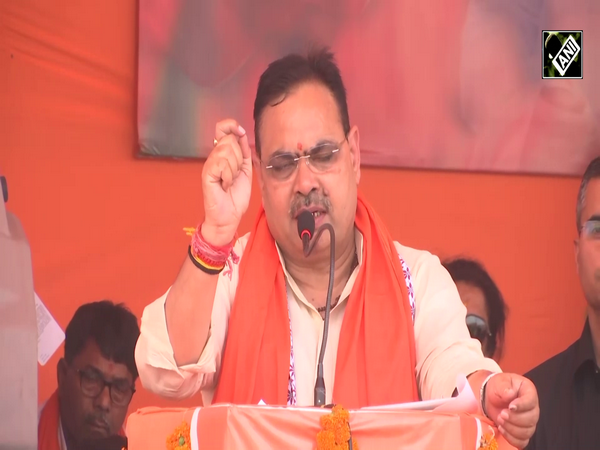Taiwan showed its democratic resilience despite China's attempts to intervene in polls: Taiwanese Foreign Minister
Jan 21, 2024

Taipei City [Taiwan], January 21 : Taiwanese Foreign Minister Joseph Wu on Saturday said that Taiwan has shown its democratic resilience to the world despite China's attempts to intervene in the national elections, Focus Taiwan reported.
In his address at the 2024 Democratic Resilience Forum in Taipei, Wu stated that Taiwan successfully held legislative and presidential polls last week despite China's attempts to manipulate the election results, according to Focus Taiwan report. He further said Taiwan's mature response to Chinese methods showcased the country's democratic resilience.
Joseph Wu stressed that with the development of informational technologies, cognitive warfare is no longer just news content, but what people face in their daily lives. He stated that the techniques used will further be upgraded in the future, noting that authoritarian regimes and their local collaborators will use more tools of intimidation.
Taiwan Information Environment Research Center (IORG), a civil data science research organization that seeks to spread public awareness of information manipulation, hosted the event on Saturday.
While addressing the forum, IORG co-director Yu Chih-hao said that information manipulation in Taiwan has characteristics including sabotaging democratic operations, denying democratic values, and negating Taiwan's sovereignty, according to Focus Taiwan report.
He further said information manipulation tried to target more "professional and classified" topics, like vaccines, semiconductors and national defence. Yu stressed that much of this misinformation is disseminated in video format or generated by artificial intelligence, making research more difficult.
Yu Chih-hao said in the months prior to the elections, even polls became a manipulative tool, including outright fake poll numbers, street surveys claiming to showcase the majority view, or politicians and online opinion leaders citing questionable surveys to frame their narratives among the supporters.
He said that vote-rigging rumours could "seriously harm Taiwanese people's trust toward the democratic system." Citing IORG research, Yu said seven days prior to the polls and after the election day, there were 15.6 million views on YouTube and 16.6 million views on TikTok on videos where vote rigging was mentioned.
According to Yu, the top 10 most viewed YouTube videos were about different opinions on the alleged vote-rigging, while the top 10 TikTok channels that had the most viewed videos on the topic were making accusations about vote-rigging, Yu said.
Yu added that the TikTok account with the most viewed videos on vote-rigging was set up only two weeks prior to the polls, Focus Taiwan reported.
Yu said eight of the 10 most viewed videos have been removed from these platforms after the Central Election Commission on Wednesday announced that it had gathered related materials as evidence and handed them over to the Taiwan High Prosecutors Office and the Criminal Investigation Bureau.
Democratic Progressive Party (DPP) candidate Lai Ching-te has won the much-anticipated Taiwanese presidential polls and is set to be the next president amid concerns about escalating tensions with China. This marks the historic third-straight victory for the DPP after Tsai Ing-wen completed her two terms as Taiwan's President since 2016.
In its first official reaction to the Presidential elections in neighbouring Taiwan, the Chinese Foreign Ministry on January 13 reiterated its claim on the breakaway territory as part of its own, saying that any changes in the island nation would not change the status of Taiwan as 'part of China.'
On the election result in Taiwan, Chinese Foreign Ministry spokesperson stated, "The Taiwan question is China's internal affair. Whatever changes take place in Taiwan, the basic fact that there is only one China in the world and Taiwan is part of China will not change; the Chinese government's position of upholding the one-China principle and opposing "Taiwan independence" separatism, "two Chinas" and "one China, one Taiwan" will not change; and the international community's prevailing consensus on upholding the one-China principle and long-standing and overwhelming adherence to this principle will not change."
The statement further reads, "The one-China principle is the solid anchor for peace and stability in the Taiwan Strait. We believe that the international community will continue to adhere to the one-China principle, and understand and support the Chinese people's just cause of opposing "Taiwan independence" separatist activities and striving to achieve national reunification."



















